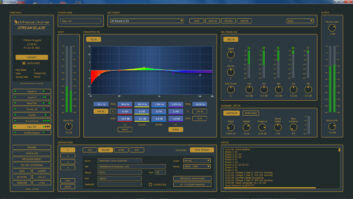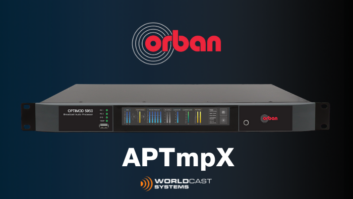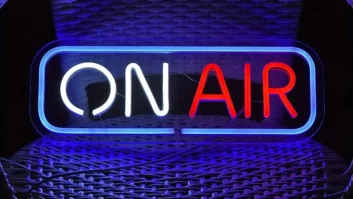Michael LeClair is a radio engineer, RW contributor and former technical editor of Radio World Engineering Extra.
This week I watched the tension over the introduction of the Voltair box escalate ever higher.
At a processing presentation by Cornelius Gould of the Telos Alliance, which manufactures the processor/monitor, we saw a sudden rush of suits into the room that turned out to be the first wave of shock troops from the Nielsen side. It was a visual display that felt, frankly, intimidating.
Telos is trying hard not to say outright that PPM is broken and in need of repair; but it’s hard to put the smoke back in that bottle (and the manufacturer is loving the attention, let’s face it).
However, the fact remains that a lot of stations — in the hundreds, according to Telos sales figures, throughout all PPM markets — have lost enough faith in the ability of the PPM system to account accurately and consistently for radio listening, to go ahead and invest in this product.
Some of the most important radio managers and engineers in the largest markets in the country have put big money on the table to protect themselves.I find it hard to believe the mass of stations that rely on the PPM ecosystem will not soon follow their lead.
So how did it get to this? Arbitron, developers of the audience measurement system later acquired by Nielsen, took particular care to keep its technology secret; this secrecy has become a great weakness. Who is it that can truly answer whether the system has not discriminated against particular formats or program choices? As keeper of all the critical information, Arbitron/Nielsen has for years been able to squelch individual station complaints by claiming that “their” data very clearly doesn’t show bias. But they have been reluctant to share that data when questioned and have insisted that the industry accept their word for it.
This approach will no longer suffice. In my opinion, Nielsen had best get behind some strong actions to regain radio stations’ confidence, and quick.
There may have been good reasons to keep things this under such strict control at one time. Preventing any one party from obtaining internal knowledge of the PPM system, and thus be able to manipulate the system, is one reason to keep things secret.
Yet engineers and PDs in large markets can be heard quite openly talking about how to “game” the system, and have done so since the day it was deployed; we have seen program directors instructing their air talent how to behave. No dry reads. Music under anything spoken. Dense production values and a high level of audio processing at all times. These were techniques used by many in the PPM world to ensure they would be counted accurately. And perhaps some of them worked. Certainly there was a belief on the part of many, if not all, that such things would be effective.
This belief, or perhaps I should say lack of belief in PPM, has exploded into outright defiance with the introduction of the Voltair and its early use by radio groups with the most at stake. Those who were not in on that game are going to react with shock, and I would expect this will soon turn to anger.
Nielsen presumably is well intended. It presumably has a firm commitment to obtaining accurate data. And I recognize that obtaining such data via a sample-based, audio watermark-type system is always going to be a process that can be criticized in our era of detailed, instant, comprehensive analytics of online content consumption.
I would like to tell you what Nielsen officials have to say about all this; but Radio World’s own efforts over recent weeks and months to obtain comment or clarifications from them about the Voltair have been rebuffed, and not always nicely. It’s Nielsen’s privilege not to talk to us in the press; but its relative silence and overall failure to better explain its position publicly is one more reason it is losing a perception battle right now. We are past the point where a bit of corporate nice-making will soothe the discussion.
Officially, we’re told that Nielsen is evaluating the Voltair; and I suspect that after tempers settle, Nielsen and Telos will be having some substantive conversations, probably invisible to the market at first. We’ll see where that process goes.
But Nielsen needs to recognize it has bigger problems regarding the radio industry’s overall trust of its product. They need to get back in the conference room for another strategy session. If they choose a legalistic and confrontational route in dealing with this storm, it’s my view that PPM itself is in serious trouble.
From the floor …
Michael LeClair












